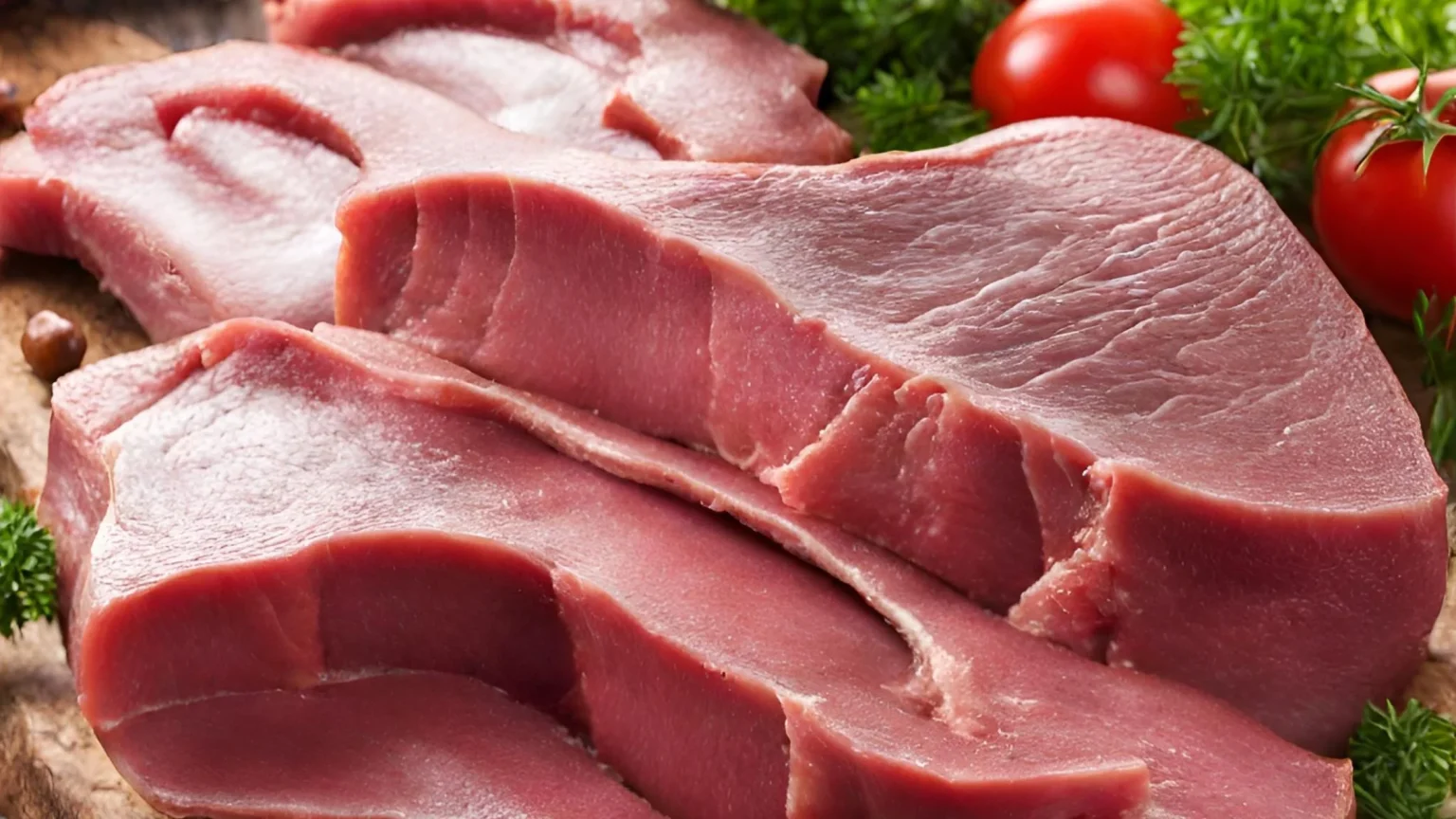Have you ever considered adding cow tongue to your diet? While it may not be a commonly consumed ingredient, cow tongue, also known as tongue or offal, can offer a range of health benefits. In this article, we will explore the nutritional value of cow tongue and evaluate whether it is a healthy choice for you.
Cow tongue is a nutrient-dense organ meat that contains an array of essential vitamins and minerals. It is particularly rich in zinc and vitamin B12, which are crucial for maintaining a healthy immune system and supporting optimal brain function. Additionally, cow tongue provides a good source of protein and fatty acids, contributing to muscle growth and overall heart health. Furthermore, it is packed with choline, a nutrient important for liver health and supporting cognitive function.
When selecting cow tongue, it is important to choose grass-fed varieties to maximize its nutritional value. Grass-fed cows tend to have higher levels of omega-3 fatty acids and other beneficial nutrients compared to conventionally raised ones. However, like any food, cow tongue should be consumed in moderation as it can be high in cholesterol. Balancing your intake of cow tongue with other nutrient-rich foods is key to maintaining a well-rounded and nutritious diet.
Key Takeaways:
- Cow tongue is a nutrient-dense organ meat rich in zinc, vitamin B12, and essential minerals.
- It provides a good source of protein, fatty acids, and choline, contributing to muscle growth, heart health, and cognitive function.
- Choosing grass-fed cow tongue can offer additional benefits due to higher levels of omega-3 fatty acids.
- Cow tongue should be consumed in moderation due to its cholesterol content.
- By incorporating cow tongue into your diet, you can enjoy its unique flavors and potential health benefits.
Nutritional Profile of Cow Tongue
When it comes to nutritional value, cow tongue is a powerhouse. This organ meat contains a unique blend of **nutrients** that are essential for a healthy diet. From its **protein** content to its abundance of **vitamins** and **minerals**, cow tongue offers numerous health benefits. Let’s explore the nutritional profile of this flavorful offal:
| Nutrient | Amount per 100g serving* |
|---|---|
| Protein | 24g |
| Calories | 242 |
| Fat | 18g |
| fatty acids | Cow tongue contains a good amount of healthy **fatty acids**, including omega-3 and omega-6. These essential fats are beneficial for brain health and can help reduce the risk of chronic diseases. |
| Choline | Cow tongue is a rich source of **choline**, a nutrient that plays a vital role in brain development and function. It also helps in the formation of DNA and supports proper liver function. |
| Vitamins and Minerals | Cow tongue contains a variety of **vitamins** and **minerals** that are essential for maintaining overall health. It is particularly high in **zinc**, which supports a healthy immune system, and **vitamin B12**, which is crucial for red blood cell formation and nerve health. It also provides important minerals such as iron and selenium. |
As you can see, cow tongue is not only rich in protein but also offers a wide array of essential nutrients. It provides you with the building blocks your body needs to thrive. Incorporating cow tongue into your diet can be a flavorful way to boost your nutrient intake and enjoy the numerous health benefits it offers.
However, it’s essential to keep in mind that moderation is key. While cow tongue can be a nutritious addition to your diet, it’s important to balance it with other nutrient-rich foods and ensure you are consuming it in moderation. Furthermore, opting for grass-fed sources can enhance the nutritional quality of cow tongue.
In the next section, we will delve deeper into the specific **health benefits** associated with consuming cow tongue and explore why it’s worth considering this organ meat as part of a balanced and nutritious diet.
Health Benefits of Eating Cow Tongue
When it comes to nutrient-rich foods, cow tongue is often overlooked. However, this organ meat contains a wide range of essential nutrients that can positively impact your overall well-being. Let’s explore the health benefits associated with consuming cow tongue and how it can contribute to a nutritious diet.
1. Improved Brain Function
Cow tongue is packed with nutrients that support optimal brain health. It is a rich source of **fatty acids** that are essential for brain development and function. These **fatty acids** help improve cognitive function and may even protect against cognitive decline as you age.
2. Enhanced Nervous System Health
With its high **choline** content, cow tongue promotes the health of your nervous system. **Choline** is a vital nutrient that aids in the production and transmission of nerve impulses, supporting the optimal functioning of your nervous system.
3. Increased Iron Intake
Cow tongue is an excellent source of **iron**, a mineral essential for the production of red blood cells and the transport of oxygen throughout your body. Including cow tongue in your diet can help prevent iron deficiency anemia and promote healthy blood circulation.
4. Nutrient-Rich
In addition to its specific health benefits, cow tongue is also a nutritious food overall. It contains a variety of important vitamins and minerals, including **vitamins and minerals**. These nutrients play crucial roles in various bodily functions, such as cell growth and immune system support.
| Nutrient | Amount per 100g of Cooked Cow Tongue |
|---|---|
| Protein | 25g |
| Fat | 11g |
| Zinc | 4.5mg |
| Vitamin B12 | 3.7μg |
| Choline | 92mg |
| Iron | 3mg |
Table: Nutritional Content of Cow Tongue per 100g of Cooked Meat
It’s important to note that the nutritional composition of cow tongue can vary depending on factors such as the animal’s diet and preparation method. For the healthiest option, choose **grass-fed** cow tongue, as it tends to have higher levels of **fatty acids** and other beneficial nutrients.
When incorporating cow tongue into your diet, it’s essential to consume it in moderation and as part of a balanced meal plan. Pairing it with a variety of other nutritious foods ensures you receive a diverse range of essential nutrients.
Incorporating Cow Tongue into Your Cooking
When it comes to preparing and cooking cow tongue, there are several techniques you can use to create delicious and satisfying dishes. One popular cooking method is braising, which involves slowly simmering the tongue in flavorful liquid until it becomes tender and easy to shred.
To braise cow tongue, start by thoroughly cleaning and peeling the tongue. Then, in a large pot or cooker, combine the tongue with aromatic vegetables like onions, carrots, and celery. Add herbs and spices such as bay leaves, peppercorns, and thyme to enhance the flavor.
Next, pour in enough liquid to cover the tongue. You can use broth, stock, or a combination of broth and wine for added richness. Bring the liquid to a boil, then reduce the heat to a simmer. Cover the pot and let the tongue cook for several hours until it becomes tender and easily pulls apart.
Once the tongue is cooked, remove it from the liquid and let it cool slightly. Use a knife to remove any excess fat or gristle, then thinly slice the tongue or shred it for use in various recipes.
Now that you have tender and flavorful cow tongue, you can incorporate it into a variety of dishes. Add it to tacos, quesadillas, or sandwiches for a unique twist. The rich and savory flavor pairs well with bold spices and sauces.
For a delicious and hearty meal, you can also use cow tongue in stews, soups, or chili. The tender meat adds depth and richness to these dishes, making them a comforting and satisfying option.
When using cow tongue in your cooking, it’s important to remember moderation. While cow tongue is a nutritious and flavorful ingredient, it should be enjoyed as part of a balanced diet that includes a variety of other nutrient-rich foods.
Here’s a summary of the key tips for incorporating cow tongue into your cooking:
- Clean and peel the tongue before cooking.
- Braise the tongue with aromatic vegetables, herbs, and spices.
- Cook the tongue on low heat for several hours until tender.
- Remove excess fat and gristle before slicing or shredding.
- Use the tender tongue in tacos, sandwiches, stews, or soups.
- Enjoy cow tongue in moderation as part of a balanced diet.
By following these tips, you can create delicious and nutritious meals with cow tongue that will impress your family and friends.
| Cooking method | Description |
|---|---|
| Braising | Slowly simmering the tongue in flavorful liquid until tender and easy to shred. |
| Tacos | Adding thin slices or shredded tongue to tacos for a unique and flavorful twist. |
| Stew | Using cow tongue in stews to add depth and richness to the dish. |
| Soups | Incorporating cow tongue in soups for a hearty and satisfying meal. |
Conclusion
In conclusion, cow tongue is a nutritious and healthy choice to incorporate into your diet. This organ meat is packed with essential nutrients, including zinc, vitamin B12, and a variety of vitamins and minerals. It provides a rich source of protein, fatty acids, and choline, which can support overall well-being.
However, it is important to consume cow tongue in moderation and consider other factors such as cholesterol content and your overall dietary balance. While cow tongue can be a beneficial addition to your meals, it is essential to balance it with other nutrient-rich foods.
By including cow tongue in your cooking repertoire, you can enjoy its unique flavors while reaping its potential health benefits. Remember to choose grass-fed sources whenever possible for an even more nutritious option. Try incorporating cow tongue into flavorful dishes through methods like braising or slow cooking to make the most of its texture and taste.
Ultimately, cow tongue can play a valuable role in a balanced and nutritious diet. It offers a wide range of vitamins and minerals, contributes to iron intake, and is a source of essential nutrients. So, if you are looking to diversify your protein intake and explore new flavors, don’t hesitate to give cow tongue a try!
FAQ
Is cow tongue a healthy food to eat?
Yes, cow tongue is a nutritious organ meat that provides several health benefits. It is rich in essential nutrients such as zinc, vitamin B12, and various vitamins and minerals.
What nutrients does cow tongue contain?
Cow tongue is an excellent source of protein, vitamins, and minerals. It contains fatty acids, choline, and high amounts of vitamins and minerals that are essential for optimal health.
Is cow tongue considered an offal or muscle meat?
Cow tongue is categorized as an offal, which refers to organ meats. It is a unique cut of meat that offers distinct flavors and textures.
Can cow tongue contribute to a balanced diet?
Yes, incorporating cow tongue into your diet can be part of a balanced and nutritious eating plan. However, it is crucial to consume it in moderation and balance it with other nutrient-rich foods.
How can I cook cow tongue?
Cow tongue is commonly prepared by braising, which involves slow cooking in a flavorful liquid. This method helps to tenderize the meat and infuse it with delicious flavors. There are several recipes and cooking techniques available for preparing cow tongue.











